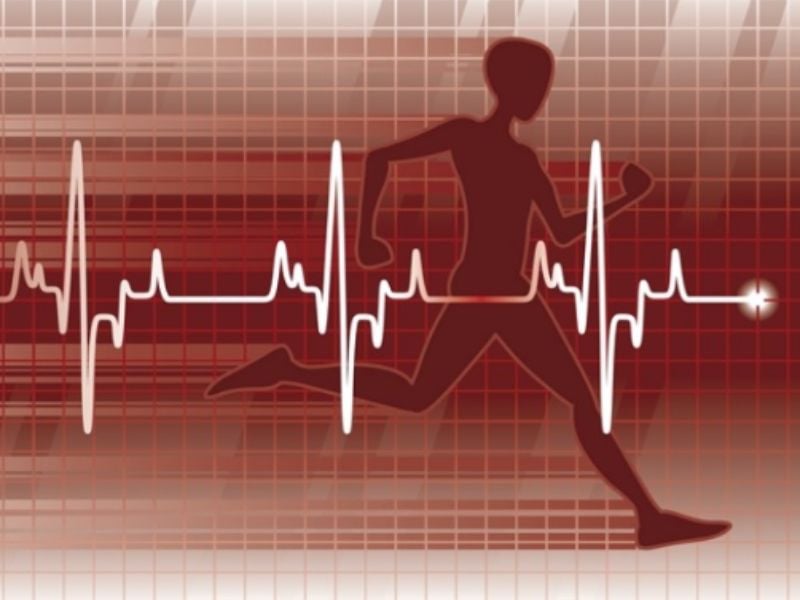According to Dr. Hoang Xuan, a cardiovascular and thoracic surgeon in Taiwan, sudden death during exercise is much more common than most people think. He cites a study from Taiwan that shows there are three sports that are more likely to cause sudden death: running with 33.98%, soccer with 10.68%, and basketball with 8.64%.
Therefore, long-distance running, especially marathon or half marathon, has the highest mortality rate, while it is the most popular sport for all ages.
Since 2012, the New England Journal of Medicine has also published an analysis of deaths in full or half marathons in the United States from 2000 to 2010, which surprised many people. Note that the distance for a full marathon is 42.195km and for a half marathon is 21.0975km.
The report shows that out of a total of 10.9 million runners, 59 people experienced sudden cardiac arrest, with a mortality rate of about 1 in 200,000. Among them, 42 people died, resulting in a mortality rate of 70%. The average age of these cases was 42, 86% (51) were male, and the disease prevalence was 5.6 times higher in males than females.

Illustration
Dr. Hoang Xuan also notes that this does not mean that only long-distance running can cause sudden death. You can also experience cardiovascular disorders or even sudden death when running short distances. Especially if you train improperly, in extreme weather conditions, or have underlying diseases (the most common being cardiovascular diseases).
Main reasons for sudden death while running
Regarding the reasons for sudden death during running, Dr. Hoang Xuan also points out the two most common factors.
Dehydration and electrolyte imbalance:
He explains that humans lose a lot of water and electrolytes when running, especially at high intensities. If not replenished in time, this can lead to the deficiency of important electrolytes such as calcium, magnesium, sodium, potassium, phosphorus… On the other hand, drinking too little water can make the blood concentrated, increase blood sodium, and cause potassium deficiency due to excessive sweating. In cases of excessive high-intensity exercise, muscle damage can occur, leading to increased blood potassium levels.
In terms of function, sodium helps balance the body’s fluid levels and stabilize blood pressure, while supporting the nervous system and muscles’ functions. Potassium plays a role in supporting the functions of the heart, nervous system, muscles, and transporting nutrients into cells, supporting metabolic processes. Calcium helps the heart contract, blood vessels relax to stabilize blood pressure, and magnesium stabilizes the cell membrane’s electrical activity, improving the functions of the nervous system and muscles…
Depending on the type of electrolyte deficiency or excess, different abnormalities can occur. For example, severe high blood potassium levels can cause the heart to slow down and cardiac arrest or dangerous arrhythmias, leading to sudden death. On the other hand, a deficiency of blood magnesium can cause irregular heartbeats in the form of “twisted peaks”, resulting in a drop in blood pressure and cardiac arrest.
Underlying cardiovascular or brain diseases:
Dr. Hoang Xuan emphasizes that those who experience sudden death while running, especially young people, often have underlying cardiovascular or cerebrovascular diseases, especially congenital heart diseases. These include abnormalities in the structure of the heart, abnormal heart valves, abnormal heart muscles…

People with coronary heart disease, when running, make their hearts work excessively, causing heart rhythm disorders, leading to disease recurrence and sudden death. Or runners may have cardiovascular or cerebrovascular diseases that they are unaware of. This reason is common in young people who die.
In addition, cardiovascular and cerebrovascular diseases can also be affected by running in certain weather conditions, also known as thermal shock. For example, when the temperature is too low, it can cause blood vessels to contract, heart rhythm disorders, and cardiac arrest, cerebral infarction. There are also cases of heat stress while running, that is, heat imbalance due to excessive heat if not promptly treated can lead to death.
The excessive accumulation of lactic acid during running can also cause sudden death. To explain this further, Dr. Hoang Xuan states that when running, muscle oxygen deficiency can occur, glucose reserves from cells are used to provide energy, resulting in the production of harmful by-products such as lactic acid. The more lactic acid accumulates, the more it causes sensations of heat, muscle fatigue, cramping, spasms. Lactic acid also inhibits the heart’s nerve, making the heart beat slowly and can cause cardiac arrest.
Some individuals may also have malformations in the cerebral blood vessels or chronic untreated diseases. When exercising with high intensity and duration, sympathetic excitation occurs, leading to blood vessel constriction, increased blood pressure, cerebral blood vessels’ spasms, rupture of weak points (aneurysms) in the cerebral blood vessels, or an overloaded body, resulting in unforeseen events and sudden death.
3 warning signs of the risk of sudden death while running

Cardiovascular diseases are the most common cause of sudden death while running (Illustration)
- Extreme thirst. It is usually so severe that the tongue sticks out to stick to the lips, the throat is dry to the point of being hot or slightly painful.
- Feeling heavy-headed, not alert. You may feel dizziness or overexcitement when running, or even feel dizzy or lightheaded or experience chest pain, sometimes accompanied by shortness of breath.
- Abnormal fast heartbeat. While running, your heart rate will increase, but you should stop if you feel your heart beating fast and out of control, the heartbeat is clearly erratic, or you feel the heart beating strongly in the chest abnormally, chest pain, possibly accompanied by difficulty breathing.
- Regular medical check-ups, especially if you have congenital cardiovascular diseases or a family history of heart and cerebrovascular diseases.
- Train properly, according to your physical condition and the weather.
- Have a proper and balanced diet. Don’t run after eating, don’t drink stimulating drinks such as coffee, alcohol…
- Drink enough water and drink water correctly.
- Take proper rest, especially if there are abnormalities while running, stop, and then seek the assistance of a specialist.
The New England Journal of Medicine published a report analyzing full and half marathons in the US from 2000 to 2010. Out of 10.9 million runners, 59 experienced sudden cardiac arrest, a rate of 1 in 200,000. Of those, 42 died, resulting in a 70% mortality rate.
The report found that the average age of those who experienced cardiac arrest was 42, with a significant majority (86%) being male. Additionally, males had a 5.6 times higher prevalence of the disease than females.
- Dehydration and electrolyte imbalance: Running causes a loss of water and electrolytes, which can lead to deficiencies if not replenished. This can affect the balance of sodium, potassium, and other essential minerals.
- Underlying cardiovascular or brain diseases: Those who experience sudden death often have undetected cardiovascular or cerebrovascular issues, especially congenital heart diseases.
- Excessive lactic acid buildup: Intense running can lead to muscle oxygen deficiency, resulting in the production of lactic acid, which can inhibit the heart’s nerve function and cause cardiac arrest.
- Extreme thirst: This can be so severe that the tongue sticks to the lips and the throat feels dry and hot.
- Heavy-headedness and lack of alertness: Runners may feel dizzy, overexcited, or experience chest pain and shortness of breath.
- Abnormal fast heartbeat: While a raised heart rate is normal during exercise, an excessively fast and erratic heartbeat can be a warning sign.
- Regular medical check-ups, especially for those with a history of cardiovascular issues.
- Proper training that suits your physical condition and the weather.
- A balanced diet, avoiding stimulating drinks, and not running on a full stomach.
- Adequate hydration before and after running.
- Rest when needed, especially if you experience any abnormalities during your run.
































